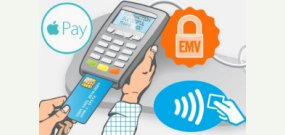Markdowns vs Discounts in Your POS Software
Alan Fisher, President, Retail Business 101
This is an important retail distinction that your POS Software system should handle properly. A markdown is a devaluation of a product based upon its inability to be sold at the original planned selling price. A discount is a reduction in the price of an item or transaction based upon the customer making the purchase. Examples of this would be employee, senior, and frequent-buyer discounts.
If you use the retail part of your POS Software system for analysis and making decisions, the inability of the system to properly account for this could lead to bad decisions. Let’s say that your buyer finds some really great shirts at a cost of $20 with a planned selling price of $50 (60 % IMU).
However, several employees find these same shirts to their liking. With an employee benefit of cost plus 10% for personal purchases, several of these shirts were sold at $22. Later, the buyer performs an evaluation and discovers that ending gross profits were closer to 35% instead of the planned 60%. Since the POS Software system could not distinguish between markdowns and discounts, inaccurate information was given to the decision-maker. Perhaps the buyer should have been buying more of these shirts, but his POS Software said it had poor gross profits.
Several years ago, a good friend, who was director of golf of a resort in the US, called me to say that his buyer was under the gun due to lower than expected gross profits. I asked him if his POS Software system could distinguish discounts and markdowns and he said no. I suggested that he take all employee discount transactions, require that they take place on one day of the week, and that they be entered in one transaction at full price with a lump sum item reducing the amount collected.
After seeing the true picture, it turned out that the buyer was exceeding expectations. Hopefully, this person never found out how close to termination he/she was. Furthermore, it was discovered that some employees were going overboard with purchases and selling to friends. While not illegal, it violated the spirit of the benefit and the policy was changed to limit purchases for personal use.
If your POS Software does not handle this, then discuss a workaround with them until it can be fixed. As I said earlier, the inability to handle this results in inaccurate information.




